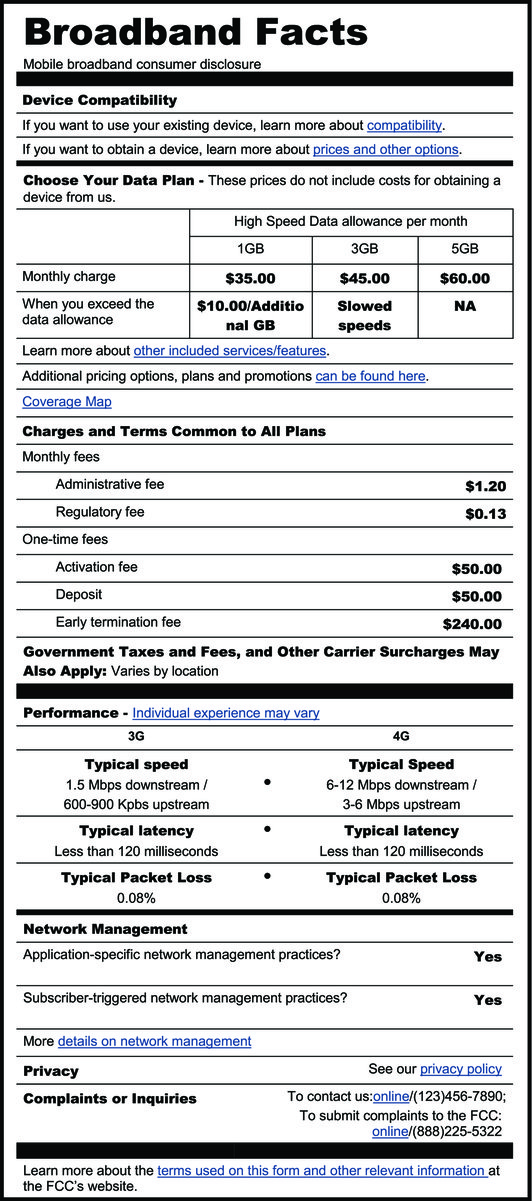Commentary
FCC Urged To Require Privacy Disclosures In Broadband 'Nutrition Labels'
- by Wendy Davis , Staff Writer @wendyndavis, March 24, 2022
The Federal Communications Commission should require broadband providers to disclose in nutrition-label format whether they draw on data about subscribers' online activity for ad targeting, the watchdog Center for Democracy & Technology says.
"Clear standardized information about privacy practices in labels allows consumers to quickly digest key information without having to navigate through densely-worded, lengthy external privacy policies," the group writes in comments filed Thursday with the agency.
The filing comes in response to the FCC's request for input on broadband "nutrition labels" -- which would require internet service providers to use a standardized format to disclose pricing, typical speeds, throttling practices and other crucial information.
The proposed formats, developed in 2016, includes a line for carriers to link to their privacy policies. But a link alone won't enable consumers to easily determine what happens to their data, the Center for Democracy & Technology argues.
Instead, labels should specify what kind of information is collected -- such as browsing history, app usage and location -- and whether that data is used for targeted advertising or other purposes beyond broadband access, the group writes.
Numerous companies and groups have weighed in with the FCC on broadband labels, but relatively few have focused specifically on privacy disclosures.
One of the other groups to do so was the Electronic Privacy Information Center, which also urged the FCC to require providers to include information about privacy in standardized formats.
The Center for Democracy & Technology references in its comments a recent report by the Federal Trade Commission, which found that consumers probably would be surprised to learn how much information -- including browsing data, television viewing history, contents of email and search, data from connected devices, location information, and race and ethnicity data -- is collected and combined by broadband providers.
That report said some providers used consumers' web-browsing activity for advertising, and a “significant” number shared customers' real-time location data with third parties.
"Privacy disclosures would help consumers avoid deception by understanding a material aspect of the terms of services they are purchasing. As the FTC's report demonstrates, consumers often lack that information," the Center for Democracy & Technology writes.
The organization adds that new transparency rules could do more than simply shed light on privacy practices. Mandatory disclosure rules, according to the Center for Democracy & Technology, could prompt broadband providers to reconsider current practices.




